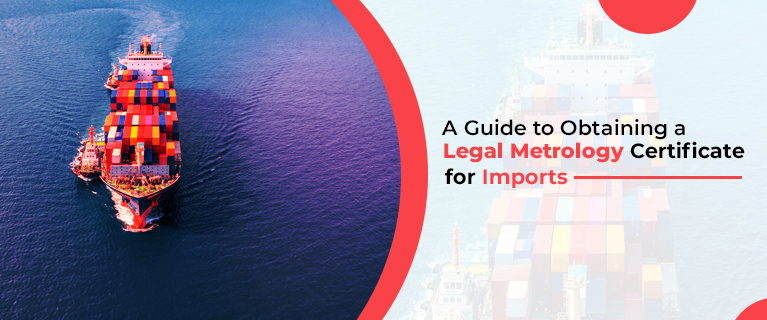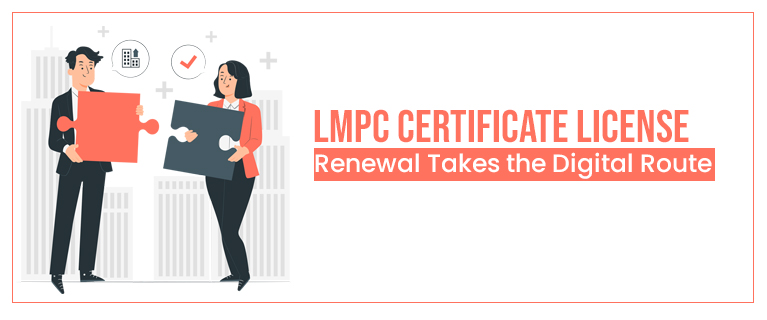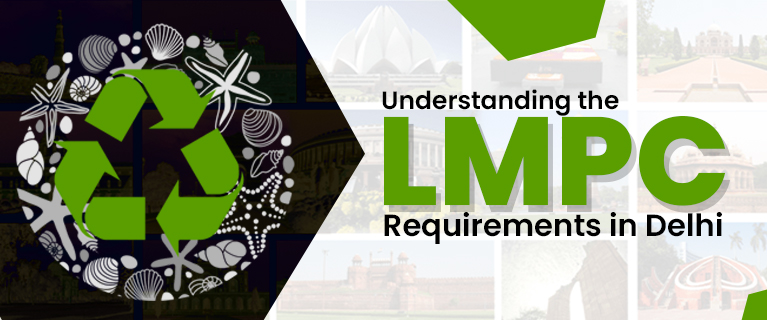A Guide to Obtaining a Legal Metrology Certificate for Imports
Embarking on the journey of importing goods involves a myriad of responsibilities, and among them, securing a Legal Metrology Certificate is a pivotal step. This comprehensive guide is designed to demystify the process of obtaining a Legal Metrology Certificate for imports in India. From understanding the significance of legal metrology to the intricacies of the certification process, we will delve into every aspect to ensure that your import activities comply with the regulatory framework.
Understanding Legal Metrology and Its Significance:
The area of metrology known as "legal metrology" focuses on the rules and legislation pertaining to measurements and measuring devices. In the context of imports, legal metrology certificate plays a crucial role in ensuring fair trade practices, protecting consumers, and maintaining standardization in weights and measures. The Legal Metrology Act in India governs these aspects, outlining the obligations for those involved in the importation of goods.
Read also this -: What are the Documents Required for LMPC CertificateKey Components of Legal Metrology for Imports:
1. Applicability and Scope:
Define the Scope of Import Activities: Before diving into the certification process, it's essential to clearly define the scope of your import activities. Identify the types of goods you are importing and whether they fall under the purview of legal metrology regulations.
2. Documentation and Compliance:
Compile Necessary Documentation: Gather all relevant documents, including details of the imported goods, business registration certificates, and any prior certifications related to the measuring instruments used in the import process.
Ensure Compliance with Standards: It's crucial to ensure that the measuring instruments used in the importation comply with the standards specified by the Legal Metrology Act. Regular calibration and verification are key to meeting these standards.
3. Application Process:
Contact the Local Legal Metrology Authority: Reach out to the local Legal Metrology Authority or the relevant government department overseeing metrology regulations in your region. Understand the specific requirements and procedures for applying for a Legal Metrology Certificate for imports.
Submit a Comprehensive Application: Complete the application form with accurate details about your import activities, the types of goods involved, and the measuring instruments used. Attach all required documents and submit the application to the designated authority.
4. Inspection and Verification:
Physical Inspection: Authorities may conduct a physical inspection of your premises to ensure compliance with legal metrology regulations. This may include verifying the accuracy of measuring instruments and assessing the storage and handling of goods.
Instrument Verification: Measuring instruments used in the import process will undergo thorough verification to ensure they meet the prescribed standards. This is a critical step in the certification process.
5. Issuance of Legal Metrology Certificate:
Grant of Certificate: Upon successful verification and compliance, the Legal Metrology Authority will issue the Legal Metrology Certificate for your import activities. This certificate is a formal acknowledgment of your adherence to legal standards in weights and measures.
Validity Period: Be aware of the validity period of the certificate. Ensure that you keep track of the expiration date and initiate the renewal process in a timely manner.
6. Renewal and Ongoing Compliance:
Renewal Process: Legal Metrology Certificates are typically valid for a specified period. Plan for timely renewal by submitting the necessary documents and fees.
Continuous Compliance: Throughout the validity period, maintain ongoing compliance with legal metrology regulations. Regularly audit and calibrate measuring instruments to meet standards.
Challenges and Tips for a Smooth Certification Process:
1. Complexity of Regulations:
Seek Professional Guidance: Given the complexity of legal metrology regulations, consider seeking assistance from professionals well-versed in metrology laws. Legal experts and consultants can guide you through the process.
2. Understanding Instrument Standards:
Engage with Suppliers: When importing measuring instruments, engage with suppliers who provide instruments compliant with Indian legal metrology standards. Clarify standards and certifications with your suppliers.
3. Awareness and Training:
Train Your Team: Ensure that your team members involved in import activities are well-aware of legal metrology regulations. Training programs can help them understand the importance of compliance.
Read also this -: Navigating the LMPC Certification for Imports4. Proactive Compliance Measures:
Internal Audits: Conduct regular internal audits to assess and ensure continuous compliance with legal metrology standards. Proactive measures can prevent potential issues during official inspections.
Conclusion
Acquiring a Legal Metrology Certificate for imports is not merely a bureaucratic requirement; it's a commitment to upholding fair trade practices and ensuring consumer protection. By understanding the nuances of legal metrology regulations and following a systematic approach to certification, importers can navigate the complexities with confidence.
This guide has aimed to empower importers with the knowledge needed to navigate the legal metrology certification process seamlessly. From understanding the applicability of legal metrology to the issuance of the certificate and ongoing compliance, proactive adherence to regulations is key. As you engage in the importation of goods, may your endeavours be marked by adherence to standards, trustworthiness, and the seamless flow of compliant trade.




Comments
Post a Comment